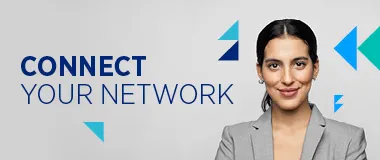Job interview tips: What are your strengths and weaknesses?

Why do interviewers ask this question?
-
Self-awareness: Can you honestly assess your
abilities and areas for improvement?
-
Growth mindset: Do you actively seek to develop new
skills and overcome challenges?
- Cultural fit: Will your strengths complement the team and align with the job description
How to identify your strengths
- What tasks do people consistently ask you to handle?
- When have you exceeded performance metrics or helped increase productivity?
- What positive feedback appears most often in your reviews?
-
Technical skills: Are you detail-oriented with data
analysis? Do you excel at project management? Perhaps your writing
skills helped your last job's marketing efforts.
-
Leadership skills: Maybe you're a natural leader
who thrives in group settings. Or you might excel at delegating
tasks while maintaining team morale.
-
Interpersonal skills: Some
people shine at building relationships with clients. Others excel at
mentoring junior team members or resolving conflicts.
- Problem-solving approach: Do you research thoroughly before making decisions? Are you the person others turn to when they need creative solutions?
- A marketing research analyst might highlight their ability to identify trends that influenced strategy.
- A project manager could discuss how their organisational skills kept complex initiatives on track.
How to articulate strengths using the STAR method
-
Situation: Describe the context or challenge you
faced.
-
Task: Explain what needed to be accomplished.
-
Action: Detail the specific steps you took.
- Result: Share the measurable outcome.
How to navigate your weaknesses
Strong weakness examples:
- "I used to struggle with delegating because I wanted to ensure everything met my standards. I've learned that training others properly upfront actually improves outcomes while building team capabilities."
- "I used to find public speaking extremely nerve-wracking. Over the past year, I’ve taken on more presentation opportunities at work and industry events. While it’s still not my favourite activity, I’ve become far more confident and clear when presenting."
- "I sometimes get so focused on perfecting details that I need to remind myself of project timelines. I now use scheduling tools and check in with my team weekly to stay on track."
How to structure your answer to bring it all together
-
Opening: "I'd be happy to discuss both my
strengths and areas where I'm actively improving."
-
Strength section: Use the STAR method with a
specific example that relates to the position. Show how this
strength would benefit their team.
-
Transition: "As for areas I'm working
on..."
-
Weakness section: Share a genuine weakness, explain
your awareness of it, and describe concrete steps you're taking to
improve.
- Closing: Connect both answers back to why you're a good fit for the job.
Nuances for different career stages
New graduates
Mid-career professionals
Senior professionals
Common pitfalls to avoid
-
Being too generic: Saying you're
"hardworking" or "dedicated" doesn't
differentiate you from others. Everyone claims these qualities.
Instead, mention specific skills like "conflict
resolution" or "data visualisation."
-
Negative self-talk: Don't put yourself down or
apologise for weaknesses. Frame them as development opportunities
rather than personal failings.
-
Choosing irrelevant examples: Avoid examples from
your personal life. Bringing up your photography hobby when
interviewing for an office admin position may be interesting, but
it won’t convince potential employers that you can succeed in the
role.
-
Not showing growth: Simply stating a weakness isn't
enough. Always explain what you're doing to address it.
-
Overthinking the strategy: Some candidates get so
focused on gaming the system that their answers sound rehearsed.
Similarly, don't disguise strengths as weaknesses ("I'm too
much of a perfectionist"). Be authentic while still being
strategic.
- Forgetting the positive attitude: Even when discussing weaknesses, maintain confidence. You're not broken - you're human and committed to improvement.
Stand out and secure your dream job
Search for jobs
Interview tips
Responding to "Tell me about yourself"
Responding to "Fun fact about yourself"
How to get time off for an interview
6 ways to show you want the job
Interview tips for contract roles
Discussing salary expectations
How to ace a panel job interview
How to answer behavioural questions
Competency based interview questions
Situational job interview questions
How to prepare for a job interview
Questions to ask the interviewer
Answering "Why do you want to work here?"
Signs your interview went well
Second job interview - what to expect
Why do you want to leave your current job?
How to answer difficult interview questions
What to wear to a job interview
Refer a friend
Join the Hays referral program and we will reward you with a $200 e-gift card for every eligible friend you refer.

